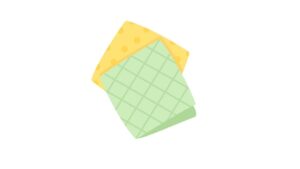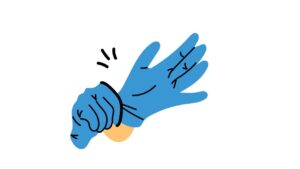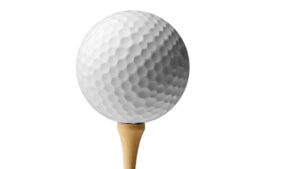Golf is a game of precision, requiring careful attention to every detail, including how you mark your ball. Whether you’re playing for fun or in a tournament, properly marking your golf ball is essential to avoid confusion, ensure accurate alignment, and comply with golf rules and etiquette. In this guide, we’ll walk you through the process of marking your golf ball step by step, along with tips and alternatives for effective marking.
15 ways How to Mark a Golf Ball?
Marking a golf ball is important to avoid confusion on the green, especially when other players are putting. Here are 15 common ways to mark a golf ball:
1. Coin
Place a coin, such as a quarter or a special ball marker, directly behind your ball on the green.
2. Alignment Line
Draw a line on the ball with a marker before the round. Use this line to align your putts and then point them toward your intended target.
3. Personalized Marker
Some golfers use personalized ball markers with their initials, logos, or lucky symbols.
4. Pitch Mark Repair Tool
Insert a pitch mark repair tool into the ground behind your ball to mark its position.
5. Blade of Grass
Pick a blade of grass and place it behind your ball to mark its spot. Just make sure it’s easy to identify and won’t be blown away by the wind.
6. Coin Stack
Stack multiple coins on top of each other to create a larger marker if you prefer a more substantial marker.
7. Ball Marker Clip
Use a magnetic ball marker clip that attaches to your hat, belt, or golf bag for convenience.
8. Bottle Cap
If you don’t have a traditional ball marker, a bottle cap can work in a pinch. Just make sure it’s flat and won’t interfere with your putting line.
9. Poker Chip
Some golfers use poker chips as ball markers due to their size and weight. They come in various designs and colors.
10. Divot Repair Tool
Open your divot repair tool and place it behind your ball to mark its position on the green.
11. Natural Markers
Use natural elements like leaves, twigs, or small stones to mark your ball’s position. Just ensure they won’t be moved accidentally.
12. Temporary Tattoos
Some golfers use temporary tattoos as ball markers, adding a fun and unique touch to their game.
13. Monogrammed Ball Marker
A ball marker with your initials or name engraved on it can add a personal touch to your golf accessories.
14. Keychain
Attach a small keychain or charm to a clip and use it as a ball marker. It’s easy to attach and remove from your golf bag.
15. Golf Glove
If you’re wearing a golf glove, you can use the snap closure on the glove as a ball marker by placing it directly behind your ball.
Read also: Can You Wash Golf Gloves?
Materials Needed
To mark your golf ball effectively, you’ll need a few materials to ensure a clear and durable mark. Here’s what you’ll need:
Permanent Marker
Choose a high-quality permanent marker specifically designed for use on golf balls. Look for markers with fine tips and waterproof ink to create a lasting mark that won’t smudge or fade easily. Brands like Sharpie offer reliable options in various colors to suit your preferences.
Stamp or Custom Marker
If you prefer a more precise and consistent mark, consider using a stamp or custom marker. Stamps come with pre-designed marks or initials that you can easily apply to your golf ball with ink. Custom markers allow you to create personalized designs, logos, or text for a unique touch to your game.
Cleaning Cloth

Before marking your golf ball, ensure the surface is clean and dry to allow the mark to adhere properly. Use a soft cleaning cloth or towel to wipe away any dirt, debris, or moisture from the surface of the ball before applying the mark.
Optional: Rubbing Alcohol
If the surface of your golf ball is particularly dirty or oily, you can use rubbing alcohol to clean it more effectively. Apply a small amount of rubbing alcohol to a clean cloth and gently wipe the surface of the ball before marking it to ensure optimal adhesion of the mark.
Protective Gloves (Optional)

If you’re using a permanent marker or stamp with ink, wearing protective gloves can help prevent ink from transferring to your hands during the marking process. While not essential, gloves can keep your hands clean and free from smudges while marking multiple golf balls.
Read also: How many dimples in a golf ball
Why Marking a Golf Ball is Important?

Marking a golf ball serves several important purposes, contributing to a smoother and fairer game for all players involved. Here’s why marking a golf ball is important:
Avoiding Confusion
On the golf course, it’s common for multiple players to be hitting their balls in close proximity. Marking your golf ball distinguishes it from others, reducing the risk of confusion and ensuring you’re playing the correct ball. This is particularly crucial in tournaments where precision and accuracy are paramount.
Ensuring Proper Alignment and Aim
A marked golf ball allows you to align it properly for better aim and accuracy. By having a distinct mark to reference, you can line up your shots more effectively, increasing the likelihood of hitting your desired target and improving your overall performance on the course.
Compliance with Golf Rules and Etiquette
Marking your golf ball is not only a practical necessity but also a matter of golf etiquette and sportsmanship. It demonstrates respect for the game and your fellow players by adhering to established rules and protocols. Properly marked balls help maintain the integrity and fairness of the game, ensuring that all players have equal opportunities to succeed.
In summary, marking a golf ball is important for avoiding confusion, ensuring accurate alignment and aim, and upholding the rules and etiquette of the game. By taking the time to mark your ball properly, you contribute to a smoother and more enjoyable golfing experience for yourself and others on the course.
Types of Markers

There are various types of markers available for golfers to distinguish their balls on the course. Here are some common types:
Traditional Markers
These are typically small coins or flat markers made of metal or plastic. They are readily available at golf shops and are a simple and affordable option for marking your ball.
Personalized Markers
Personalized markers add a unique touch to your game by featuring your initials, name, or a custom design. These markers can be engraved or printed with your preferred text or image, allowing you to showcase your personality on the course.
Temporary Markers
Temporary markers include stickers, decals, or other removable markers that adhere to the surface of the ball temporarily. These markers are convenient for temporary identification but may not be as durable as permanent markers.
Alignment Aids
Some golfers use alignment aids, such as lines or arrows drawn directly on the ball, to assist with aiming and putting. These markings are not traditional markers but serve a similar purpose in helping golfers align their shots more accurately.
Custom Markers
For those looking for something truly unique, custom markers offer endless possibilities. You can create custom markers with specific designs, logos, or colors to suit your preferences. While these markers may be more expensive than traditional options, they allow you to personalize your golfing experience to the fullest.
Read also: How Much Are Golf Carts?
Tips for Effective Marking
- Keep it Simple: Avoid intricate designs or overly elaborate marks that may be difficult to distinguish on the course. Opt for a clear and straightforward mark that is easily recognizable from a distance.
- Ensure Visibility: Choose a mark that is visible from all angles to prevent confusion during play. A mark that stands out against the background color of the ball and contrasts well with the grass will make it easier to locate your ball on the fairway or green.
- Avoid Obstruction: When marking your golf ball, consider the placement of the mark to avoid obstructing your view or interfering with your putting line. Place the mark on a clear area of the ball’s surface that won’t interfere with its roll or your ability to line up your shots.
- Consider Personal Preferences: Experiment with different marker types, colors, and designs to find what works best for you. Some players prefer simple initials or dots, while others may opt for personalized markers or stamps with their logo. Choose a marking method that suits your style and preferences.
- Test Durability: Before heading out onto the course, test the durability of your mark by rubbing it with your finger or a cloth. Ensure that the mark does not smudge or fade easily, especially in wet or humid conditions. If necessary, reapply the mark or try a different marker for better longevity.
- Regular Maintenance: Check the condition of your mark regularly throughout your round of golf. If you notice any fading or damage to the mark, take the time to reapply it as needed to maintain its visibility and effectiveness.
Alternatives to Marking
If you prefer not to mark your golf ball, there are alternative methods to distinguish it from others:
- Identifiable golf balls: Use uniquely colored or patterned golf balls that are easy to recognize.
- Alignment aids: Utilize alignment lines or arrows on the ball to assist with aiming and putting.
- Memorization: Memorize the brand, model, and markings of your golf ball to identify it quickly on the course.
Common Mistakes to Avoid

Avoiding common mistakes when marking your golf ball is crucial for a seamless game. Here are some pitfalls to steer clear of:
Using Non-Permanent Markers
Opting for markers that aren’t designed for golf balls can lead to smudging or fading, rendering your mark illegible after just a few hits. Stick to permanent markers specifically formulated for golf balls to ensure durability throughout your game.
Overcomplicating the Mark
While it might be tempting to create an intricate design or add excessive text to your mark, this can backfire on the course. Complex marks can be challenging to identify quickly, leading to delays in play and potential confusion with other players’ balls. Keep your mark simple and easy to recognize from a distance.
Placing the Mark in an Illegible Area
Carefully consider where you place your mark on the golf ball. Avoid placing it near the ball’s dimples or seams, as these areas can affect the visibility and legibility of the mark. Instead, choose a clear area of the ball’s surface where the mark will remain prominent and unobstructed during play.
Ignoring Marking Guidelines
Golf rules and regulations provide guidelines on permissible markings for golf balls. Be sure to familiarize yourself with these guidelines and avoid marking your ball with any prohibited designs or text. Violating marking rules could result in penalties during tournament play.
Neglecting Mark Maintenance
Your mark can undergo wear and tear over the course of a round, especially if you’re playing in adverse weather conditions or on rough terrain. Regularly inspect your mark for signs of fading, smudging, or damage, and be prepared to touch it up or reapply it as needed to maintain its visibility and effectiveness.
Conclusion
Marking your golf ball is a simple yet essential aspect of the game that can greatly improve your playing experience. By following these steps and tips, you can ensure your ball is easily distinguishable, properly aligned, and compliant with golf rules and etiquette. Whether you prefer traditional markers or personalized designs, finding the right marking method for you can enhance your confidence and performance on the course.
FAQs:
- What’s the purpose of marking a golf ball? Marking a golf ball helps avoid confusion on the course, ensures proper alignment and aim, and demonstrates respect for golf rules and etiquette.
- Can I use any marker to mark my golf ball? It’s recommended to use a permanent marker specifically designed for use on golf balls to ensure durability and visibility.
- How often should I remark my golf ball? You should reapply your mark if it fades or becomes illegible over time, typically after several rounds of play.
- Can I use initials as a mark? Yes, initials are a common and effective way to mark your golf ball, as long as they are legible and easily recognizable.
- Is it legal to mark my golf ball with a logo? Yes, marking your golf ball with a logo is legal as long as it does not contain any prohibited designs or text according to golf rules and regulations.










